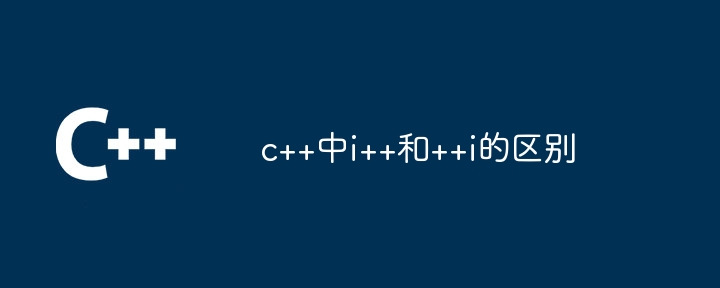Home >Backend Development >C++ >The difference between i++ and ++i in c++
The difference between i++ and ++i in c++
- 下次还敢Original
- 2024-05-01 14:45:22914browse
The difference between i and i in C lies in the order of reading and incrementing the variable value: i: read the original value of i first, and then increment its value. i: First increment the value of i, and then read the incremented value.

The difference between i and i in C
In the C programming language, i and i are both suffix increments Operator used to increase the value of variable i by 1. However, there is a subtle but important difference between the two:
i :
- first performs a value read operation on i and then increments it value.
- Therefore, the value of the i expression is the original value of i, not the incremented value.
i:
- First increment the value of i, and then read the incremented value.
- Therefore, the value of the i expression is the incremented value of i.
Example:
<code class="cpp">int i = 5; int j = i++; // j = 5, i = 6 int k = ++i; // k = 7, i = 7</code>
In the above example, j increments the value of i from 5 to 6, but the expression j itself still has the value 5. On the other hand, i increments the value of i from 6 to 7, and the expression itself also has the value 7.
Usage scenarios:
- i: Use when you need to get the original value of a variable, such as in a loop counter.
- i: Use when you need to get the incremented value of a variable, such as in incremental assignment.
To summarize, i and i are both postfix increment operators, but they differ in the order in which they read and increment variable values.
The above is the detailed content of The difference between i++ and ++i in c++. For more information, please follow other related articles on the PHP Chinese website!

